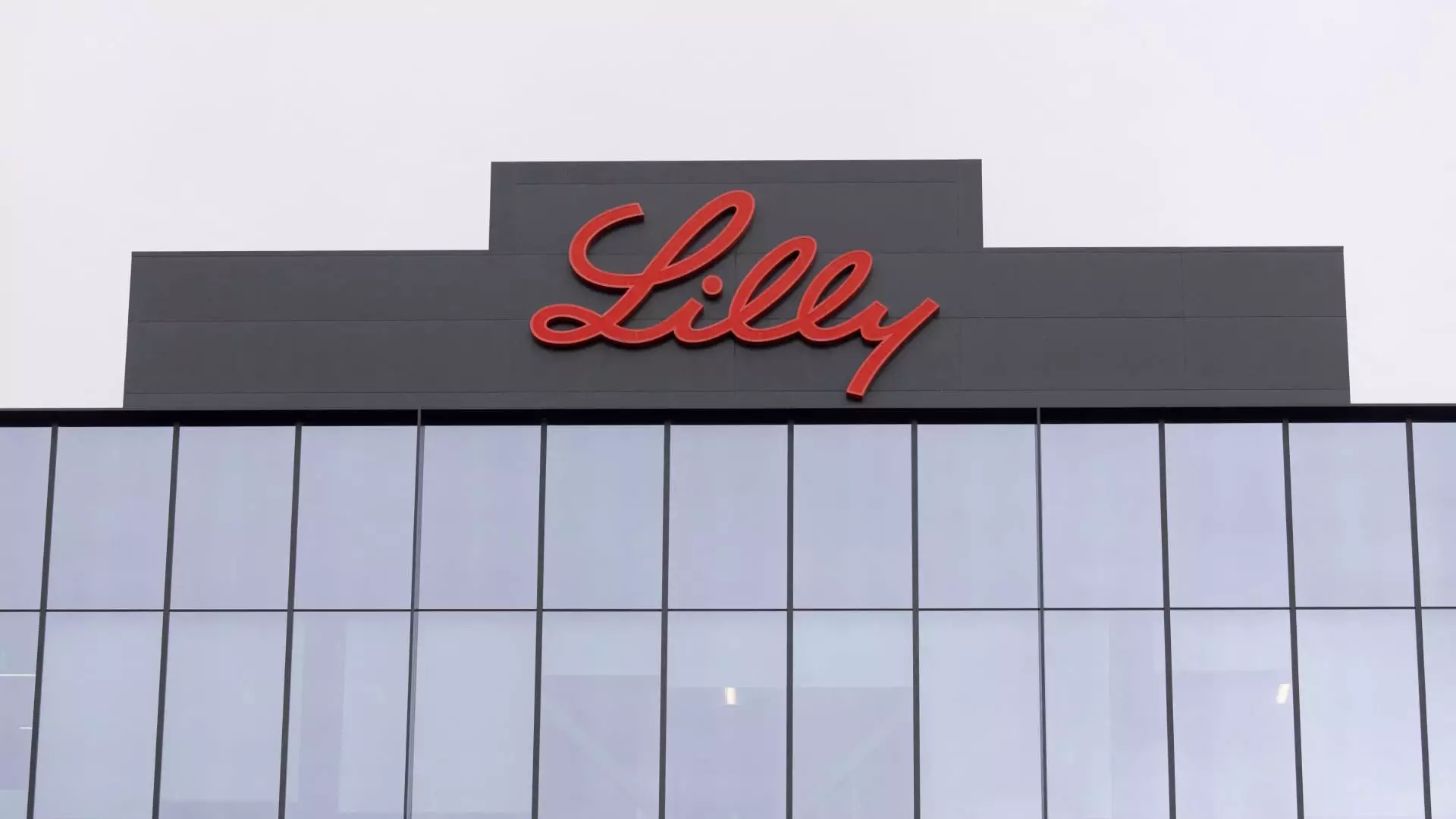Eli Lilly’s recent financial report for the third quarter of 2023 has raised concerns among investors and industry analysts alike. The company not only failed to meet profit and revenue expectations but also announced significant downgrades to its guidance for the entire fiscal year. This disappointment can primarily be attributed to lackluster sales from its prominent weight loss drug, Zepbound, and its diabetes treatment, Mounjaro. Following the announcement, Eli Lilly’s stock plummeted over 12% in morning trading, signaling investor concern about the company’s future growth prospects and ability to compete in a rapidly evolving pharmaceutical landscape.
Eli Lilly revised its full-year adjusted earnings forecast to a range of $13.02 to $13.52 per share, a notable drop from previous estimates of $16.10 to $16.60. This revision reflects a pressing need to reevaluate expectations in light of disappointing market performance and strategic missteps. The company also updated its revenue projections, anticipating sales to be between $45.4 billion and $46 billion, down from a prior outlook of $46.6 billion. The reported figures for the third quarter were sobering: earnings per share (EPS) came in at $1.18, significantly below the $1.47 that analysts had expected, while revenue of $11.44 billion fell short of the anticipated $12.11 billion.
The disappointing sales figures are largely driven by the underperformance of Eli Lilly’s flagship drugs. Zepbound, which became available in the U.S. market nearly a year ago, generated $1.26 billion in sales during the quarter. This figure fell drastically short of the $1.76 billion analysts had predicted. Similarly, Mounjaro, although it reported $3.11 billion in revenue—more than double its earnings from a year prior—still lagged behind the anticipated $3.77 billion. Such results indicate a troubling disconnect between market expectations and actual performance.
The growing demand for these incretin drugs, which are designed to assist with appetite suppression and blood sugar regulation, has surged recently. However, manufacturers face a unique challenge: supply has not kept pace with demand, leading to growing frustration among consumers and healthcare providers alike. In recent months, Eli Lilly and its rival, Novo Nordisk, have been compelled to invest substantially in scaling up production capabilities to address these supply shortages.
Despite the FDA’s recent reports stating that all doses of Zepbound and Mounjaro are now available in the U.S., the effects of the supply shortages linger. Eli Lilly CEO David Ricks suggested that the drop in third-quarter sales was not due to supply issues but rather inventory adjustments made by wholesalers. This distinction indicates that internal logistics and inventory management may need a reevaluation in order to align with market demand.
Ricks also mentioned that plans to enhance advertising for Zepbound have been postponed to November, emphasizing the importance of customer satisfaction before ramping up promotional efforts. He noted, “When people go and they can’t get their medicine, they’re very frustrated.” This keen awareness of customer sentiment is a critical aspect of maintaining brand loyalty in the pharmaceutical industry, especially among patients reliant on these essential medications.
Looking Ahead: Manufacturing Capacity and Competitive Landscape
As the year progresses, Eli Lilly is optimistic about increasing its production capabilities for incretin drugs. According to Ricks, the company expects its production levels in the second half of 2024 to exceed 50% of what they were during the same period in the previous year. This ambitious goal, coupled with plans for even greater expansions in manufacturing capacity moving into 2025, may position Eli Lilly to better meet future consumer demand.
However, Eli Lilly’s challenges do not end with internal production levels. The company also faces competition from compounding pharmacies, which are producing custom, often cheaper alternatives to its branded drugs. The FDA’s decision to remove tirzepatide—the active ingredient in both Zepbound and Mounjaro—from its shortage list has drawn opposition from these pharmacies, potentially complicating Eli Lilly’s market position further.
Eli Lilly’s recent quarterly challenges have cast a shadow over its future prospects, but the company remains poised for potential recovery through strategic adjustments in production and marketing. As it navigates internal and external pressures, the upcoming quarters will be crucial for repositioning itself within an increasingly competitive sector.

